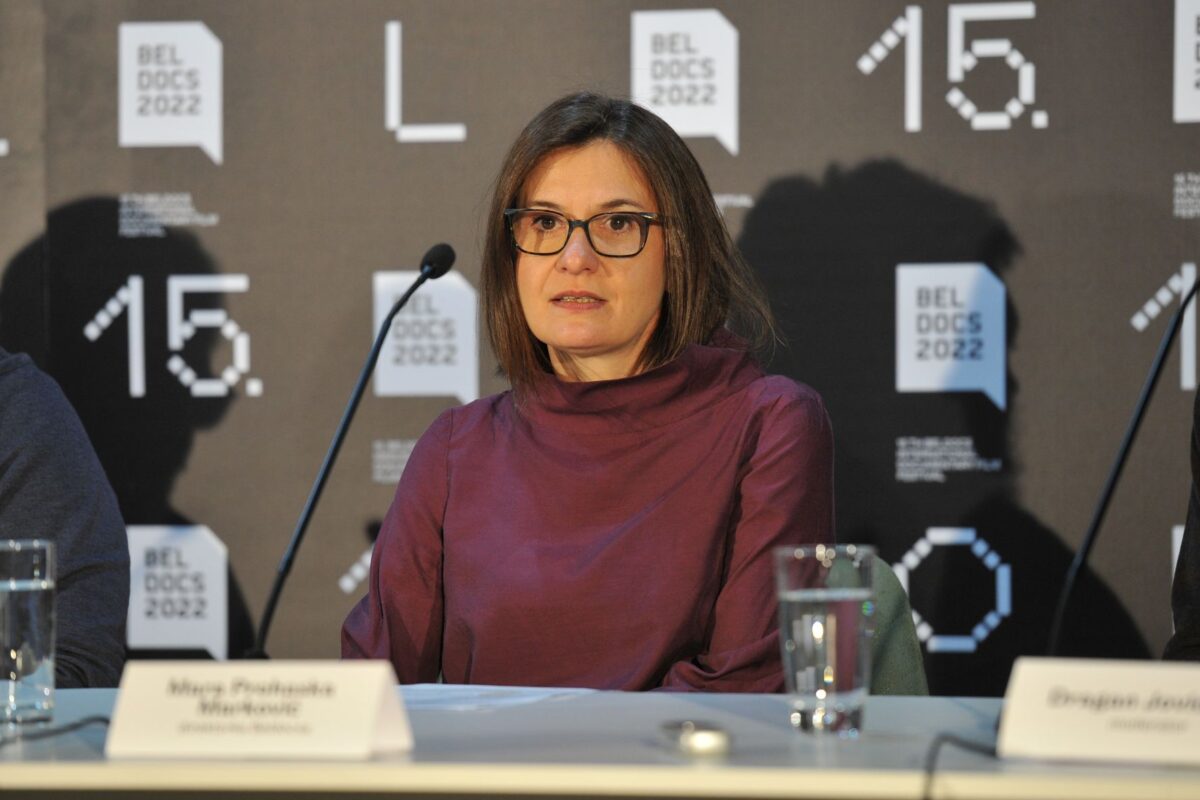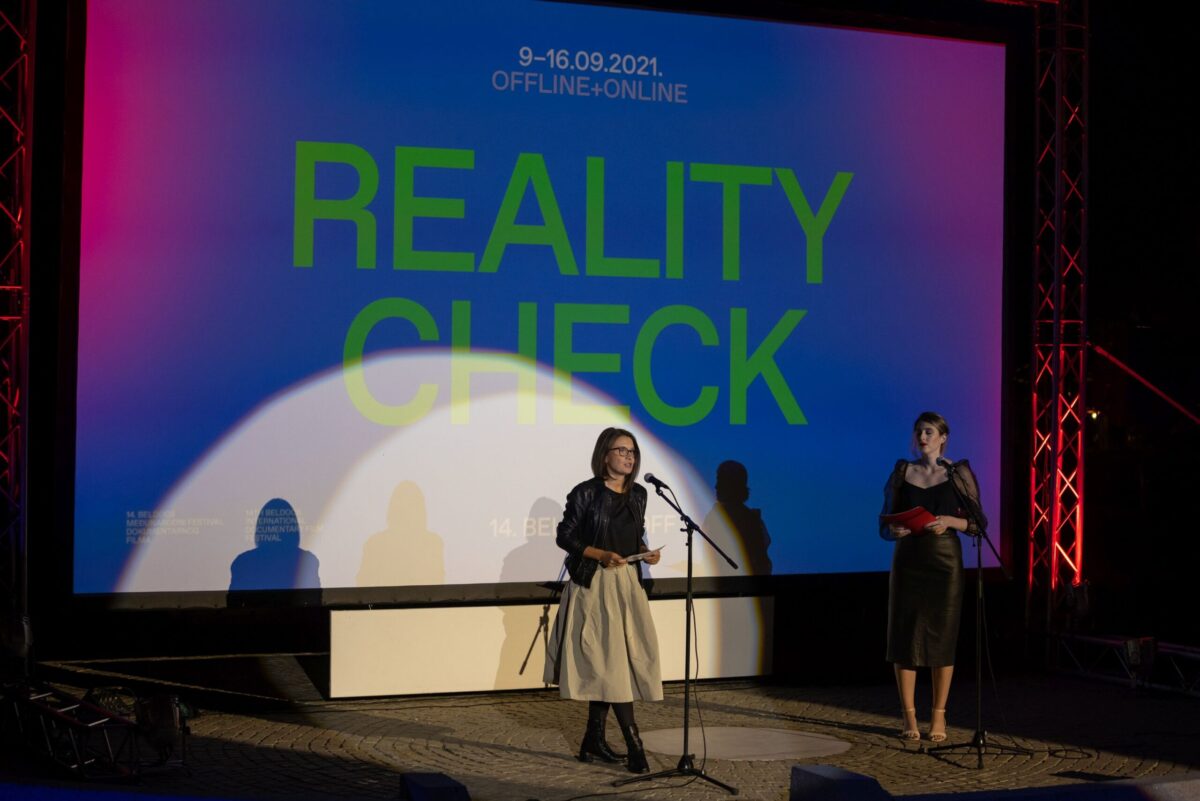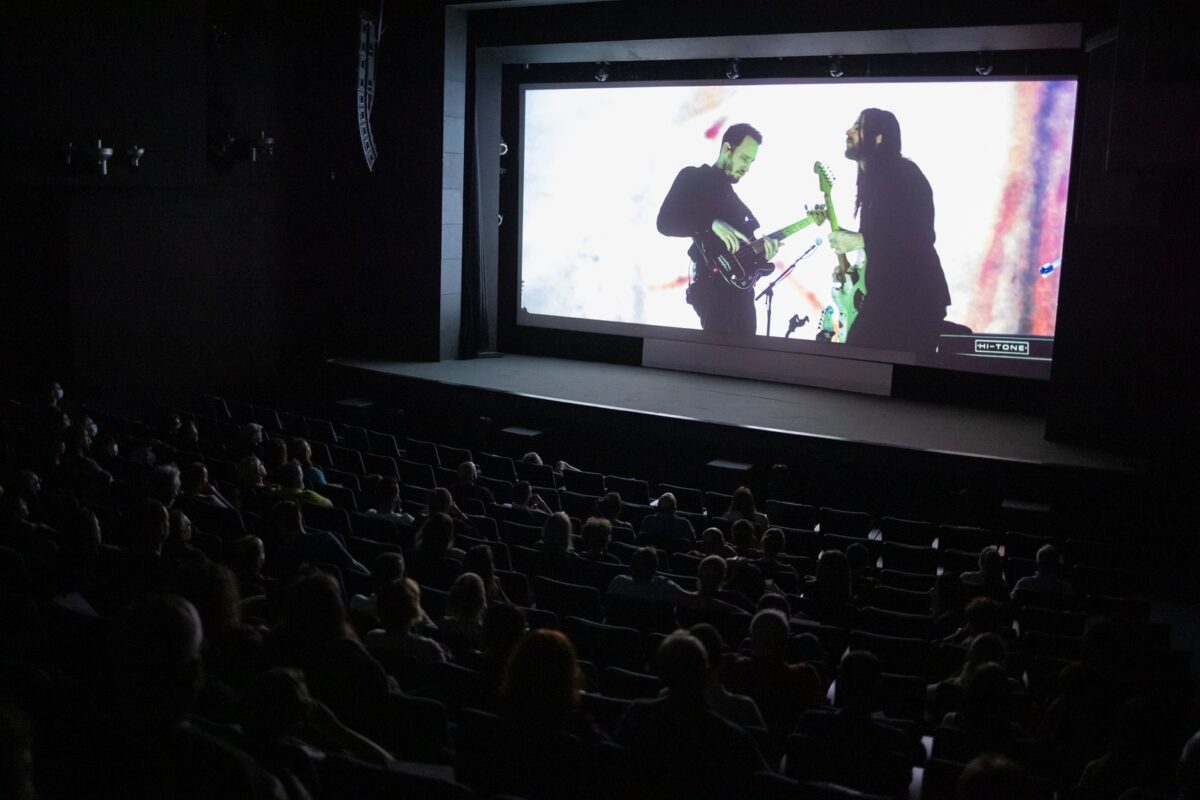We have been dedicated to daring, authentic and creative films – documentaries that penetrate deep and stimulate thinking, reveal stories from reality, bring people closer together, and inspire them to reflect, create and believe in changes.
The jubilee, 15th Beldocs Festival, one of the leading documentary film festivals in this part of Europe, opened on 11th May in Belgrade and will last until May 18th. The Festival will showcase over 100 best documentary films of today. This year, a new regional VOD platform, Beldocs+, was launched, where documentary films from previous festival editions are available. The platform can be accessed in Serbia and other West Balkan countries on www.beldocs.rs.
We’ve talked with the festival director, about this year’s festival and its long-lasting heritage.

The 15th Beldocs Festival is getting closer. As someone who has been long involved in its organisation, could you tell us something about its development over the years and its position today?
I have been involved in the organisation of Beldocs since its first edition in 2008. Given that I was at the very source, I had a chance to participate in the development of one of the most important documentary film festivals in this part of Europe. The skill of balancing between possible and impossible in the first years, which were very fragile, was essential for overcoming the lack of true institutional support since Beldocs was created as an initiative of individuals-enthusiasts and it took years for institutions to recognise its importance. At that time, documentary film was at the margins of the Serbian cultural scene, its production was modest and it relied on individual efforts with no local institutional support, without the possibility of showing the films that were made and without the audience to follow this type of film production.
Beldocs premieres films made by some of the most daring filmmakers from around the world.
At the same time, the incredible vitality of the global documentary film production could be experienced at the festivals in Amsterdam, Jihlava, and Nyon, where documentary film was the central focus. The Beldocs founder had a vision of Belgrade and Serbia as one the centres of creative documentary filmmaking in the network of world festivals. Today, Beldocs is truly recognised in European, regional and national circles as a vibrant point of dynamic circulation of documentary films, projects, ideas, film professionals, audience, media, children and young people, that is, as the most important networking place for global creative documentary film making in this part of Europe.
This year we are marking a jubilee. We have existed, lived and grown for 15 years, both as a festival and as an organisation. Already for fifteen years, we have been dedicated to daring, authentic and creative films – documentaries that penetrate deep and stimulate thinking, reveal stories from reality, bring people closer together, and inspire them to reflect, create and believe in changes. We believe that by addressing socially relevant issues that we as a society, individuals or groups are facing, we are creating an inspiring place for the audience and film professionals.

What is special about this year’s festival? What would you like to single out from the festival’s programme and organisation?
We will screen over 100 best documentary films and XR contents from the whole world, in 12 programme sections, at six locations in Belgrade and host about 30 film professionals from abroad. The tickets for all screenings can be bought in one place – at the Beldocs website. Beldocs is still the only festival in Serbia that offers this type of service to the audience. The Festival’s online ticketing service was developed two years ago, to keep up with the digital transformation processes and help the audience find the films they wanted.
Beldocs premieres films made by some of the most daring filmmakers from around the world and some of this year’s most eagerly awaited world documentary films but also discovers new talents, authors who offer a fresh perspective and inventive styles. We are exceptionally happy to organise national premieres, at the Festival’s opening and closing, of the films developed as projects in the framework of the Beldocs Industry Programme of previous years. The Festival opens with the film ’Museum of Revolution’ by Srđan Keča and closes with the Ukrainian film ’Outside’ by Olha Zurba. By screening this and other Ukrainian films we wish to give support to Ukrainian documentary filmmakers, our colleagues and partners. As a special in memoriam screening, we present the film ’Mariupol’ by the Lithuanian director Mantas Kvedaravičius, who was killed precisely at Mariupol at the beginning of April when he returned there to film with his camera.
In the context of a documentary film festival, cinema sometimes plays the role of the ancient Roman arena.
We are particularly proud of the Serbian Competition Programme with the premieres of Serbian documentary films; the International Competition Programme includes the first or second works of some of the most daring authors who frequently surprise us with their originality in the approach and lucidity of their film language; then Meteors, a programme section led by innovations and experimenting; Woman vs. System, a special programme addressing the socially-relevant topic; Beldocs Teen selected by young programmers within the expertly moderated process, and Fireworks, inspired by the visually powerful films. The unique feature of Beldocs is certainly the XR exhibition: an immersive reality where we present works created utilizing the most advanced technology, and we award the future documentary films and XR contents and stimulate their making and distribution. Finally, Beldocs, together with the Industry activities, has been recognised at the European level as a unique event in this part of Europe and one of the main meeting points for audio-visual professionals from Europe, the region and Serbia, to develop a creative documentary market.

Over the years, Beldocs was, relatively speaking, in a habit of ‘shocking’ the audience by inviting controversial guests, such as Bernard-Henri Lévy or Cicciolina, but also of screening films of a more hermetic, abstract art expression. How do you find the right balance and which side is Beldocs leaning towards more?
Beldocs is leaning towards all sides. In the programme sense, a documentary film festival must be considerably open and keep its horizon sufficiently distant, wide and deep to cover the diversity of the world in which we live and present the most diverse narratives about people, phenomena from the sphere of reality or from the cracks of what we call the reality. I believe that Beldocs has that broadness to present the first-rate art audio-visual works, socially-engaged films, popular and commercial works and that in each of these cases, films from the most daring contemporary authors who inspire and stimulate thinking. Sometimes the topics we address are socially sensitive, even controversial or provocative. By careful selection of films in the framework of Beldocs, we want to open space for public dialogue, discussion, and exchange that sometimes surpasses artistic, informative and intellectual frameworks and enter the sphere of personality development, somatic effects, re-examination and facing current challenges of the world we live in.
In the context of a documentary film festival, cinema sometimes plays the role of the ancient Roman arena. In the Roman arena, the provocateur was the challenger who teased the audience, in order to provoke their emotions. Documentary film has the power to divert the audience, individuals or groups from the regular, peaceful state of mind into a state of turbulence and heated reactions. These are situations in which our emotions and our bodies act through our mind, i.e. the intellect, but which transform the latent into the manifested, disintegrate us for a moment and enable us to wake up the unconscious. More than that, documentary film enables us to immerse ourselves in the lives of others, perceive the world from a different perspective, and be more emphatic and aware of people who will create a better society. I believe that documentary film is a great stimulus for growth.